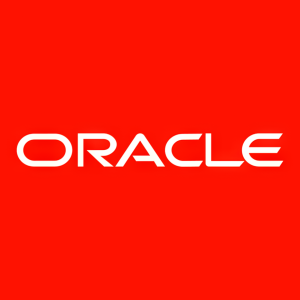Oracle Health Information Network Achieves Candidate Status for TEFCA QHIN
Rhea-AI Summary
Oracle Health Information Network, a subsidiary of Oracle Health (ORCL), has achieved candidate status as a Qualified Health Information Network (QHIN) under the Trusted Exchange Framework and Common Agreement (TEFCA). The network will be built on Oracle Cloud Infrastructure (OCI), offering enhanced scalability, security, and performance for healthcare data sharing.
If designated, the network will enable Oracle's customers to participate in a nationwide system for secure health information exchange between providers, payers, and government agencies. The platform aims to streamline data sharing, reduce complexity, and support advanced AI capabilities for improved healthcare decision-making and treatment optimization.
Positive
- Built on Oracle Cloud Infrastructure (OCI), reducing dependency on third-party technology
- Potential to expand Oracle's presence in healthcare data exchange market
- Platform designed to support advanced AI capabilities for healthcare optimization
- Integration with government-endorsed nationwide health information sharing system
Negative
- Currently only a candidate status, pending final designation
- Success depends on completion of pre-production testing and project plan phases
Insights
Oracle's QHIN candidacy positions it as a potential key player in nationwide health data exchange, leveraging cloud infrastructure within the TEFCA framework.
Oracle Health Information Network's achievement of candidate status as a Qualified Health Information Network (QHIN) under the Trusted Exchange Framework and Common Agreement (TEFCA) represents a significant strategic positioning move in healthcare information exchange. This federal initiative establishes the standardized nationwide approach for health information exchange, with QHINs serving as the central networks facilitating this ecosystem.
The candidacy indicates Oracle has entered the pre-production testing phase of the QHIN designation process. By building this network on Oracle Cloud Infrastructure (OCI), the company creates natural integration between its healthcare and cloud businesses. The press release highlights reducing dependencies on third-party technology, suggesting a vertical integration strategy that could potentially streamline operations.
Healthcare interoperability remains a persistent challenge despite years of industry and regulatory efforts. By potentially becoming one of the government-endorsed networks for health information exchange, Oracle would secure positioning at a critical junction point for clinical data flowing between providers, payers, and government agencies.
This initiative appears to leverage assets from Oracle's Cerner acquisition, with leadership from Seema Verma, former Administrator of the Centers for Medicare & Medicaid Services, bringing valuable regulatory expertise. The connection to AI capabilities mentioned in the release indicates Oracle recognizes that access to diverse healthcare datasets is foundational for developing effective healthcare AI applications.
While strategically significant for Oracle's healthcare positioning, this announcement represents an intermediate step (candidacy) rather than full QHIN designation, with no immediate revenue implications disclosed. It demonstrates Oracle's commitment to becoming a central player in healthcare data infrastructure with potential long-term benefits if full designation is achieved.
"As a candidate of QHIN, we're eager to collaborate with other designated QHINs and candidates to validate the exchange of patient data to help remove cost and complexity across the industry and improve care delivery," said Seema Verma, executive vice president and general manager, Oracle Health and Life Sciences. "Building on our long-standing commitment to interoperability, we want to ensure patients can easily access their comprehensive clinical history and share relevant portions as needed to achieve their treatment goals."
Oracle Health Information Network will be built on Oracle Cloud Infrastructure (OCI) and will benefit from its agility, scalability, advanced security, and high performance. OCI is expected to make sharing health data faster and more efficient by reducing the dependencies on third party technology that can complicate and slow down the process. Accelerating data exchange and securely expanding the variety and volume of data available across the healthcare ecosystem is increasingly important to fuel advanced AI capabilities that can help inform care decisions, optimize treatment paths, and streamline payment processes.
If designated, Oracle Health Information Network customers will be able to participate in the U.S. government endorsed nationwide approach to offer secure, smooth, and standardized sharing of health information between providers and payers, and government agencies.
Additional Resources Regarding Oracle's Commitment to Interoperability:
- Oracle Health Information Network's Candidate QHIN Frequently Asked Questions
- Learn more about Oracle Health's Interoperable Solutions
- Learn more about TEFCA
About Oracle
Oracle offers integrated suites of applications plus secure, autonomous infrastructure in the Oracle Cloud. For more information about Oracle (NYSE: ORCL), please visit us at www.oracle.com.
Trademarks
Oracle, Java, MySQL and NetSuite are registered trademarks of Oracle Corporation. NetSuite was the first cloud company—ushering in the new era of cloud computing.
![]() View original content to download multimedia:https://www.prnewswire.com/news-releases/oracle-health-information-network-achieves-candidate-status-for-tefca-qhin-302449971.html
View original content to download multimedia:https://www.prnewswire.com/news-releases/oracle-health-information-network-achieves-candidate-status-for-tefca-qhin-302449971.html
SOURCE Oracle









